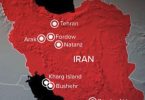You are a business executive or a member of the government with sensitive data on your laptop computer. You check into a luxury hotel in the United States or in many other countries. Chances are this hotel may be owned by a Chinese company even though it carries a known western brand name. Often such investors get their money directly from the Chinese Government.
You connect your computer to the hotel wifi and you may notice your secure connection can no longer be secure. Ever noticed wanting to send an email using your own domain, and you have to unblock “authentication” to make it work while connected to a hotel network? Did you ever wonder how this could open up your computer data to foreign espionage? You are no longer the only one worrying.
Chinese global investments in tourism, specifically in name brand luxury hotels and resorts is overwhelming. This is the same for Chinese investments in the United States, as it is for Chinese domination in Cuba, South America, India, South East Asia and many African countries.
Donald Trump once said: “We cannot trust the Chinese. They are not our friends.” Trump mentioned this discussing the APEC conference in Hawaii in 2011 when criticizing president Obama.
Of course Mr. Trump is dangerously outspoken, so this is in no way any form of endorsement for the current US Republican presidential candidate. He is known for saying what he feels, but his words however may be worth some further thoughts.
Chinese deals have led the list of those scrutinized by the little-known Committee on Foreign Investment in the United States, or CFIUS, an interagency panel headed by the Treasury Department that screens foreign acquisitions of U.S. businesses for national security implications.
CIFUS can ask for modifications or, in extreme cases, refer a deal to the White House for a final ruling.
The surge in Chinese investments in U.S. hotel companies is starting to raise a question rarely heard in the world of commercial real estate: When does the ownership of a luxury hotel become a matter of national security?
So much Chinese capital has been flooding into the U.S. real estate market, especially in California and New York. Chinese bids for U.S. manufacturing, financial and technology companies have been on the rise, spurring more government national security reviews. Until recently, real estate deals haven’t raised the same political or security concerns. But that may be changing.
President Obama blocked the purchase by Chinese-owned Ralls Corp. of several Oregon wind farm sites in 2012 on the grounds that some sites were located too close to a Naval weapons station.
Chinese hotel operator JE Group acquired the Hollywood Hills property that includes Yamashiro restaurant for $40 million, a price that hints at extensive redevelopment plans. In downtown L.A., work is underway on the massive three-building Fig Central hotel, retail and condo development owned by China’s Oceanwide Real Estate Group.
A review of the Chinese $1.95-billion acquisition of New York’s Waldorf-Astoria Hotel in 2014, possibly recognizing that the hotel’s role as the official residence of the U.S. ambassador to the United Nations and the frequent lodging for U.S. and foreign dignitaries with business in New York made it a prime target of CFIUS. No action by US authorities were taken.
A recent “off the record” remark by the Cuban Minister of Tourism made during the UNWTO Americas conference is worth thinking about.
It appears Cuba is hungry and open for U.S. hotel and resort investments, but if there was a choice, Chinese investments would get priority approval. American travelers enjoy luxury hotels, but they don’t care if they were owned by an American or Chinese company.”
The next time you travel on business, you have sensitive data on your computer that could lead to industrial espionage attacks, or you are a government official with data you don’t want to get into Chinese hands, select your hotel carefully.






















